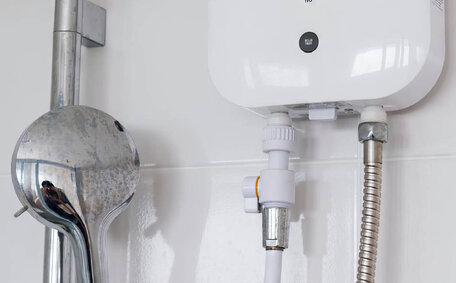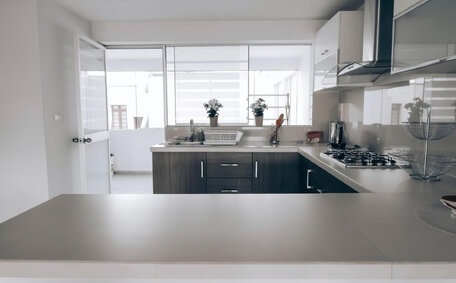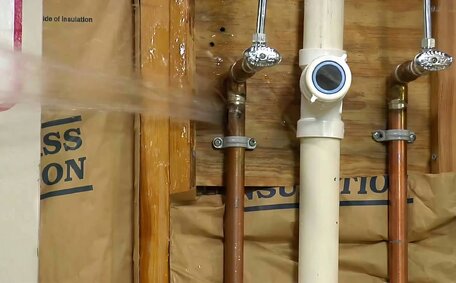Introducing Pipe Relining as an Alternative to Pipe Replacement
Many homeowners mistakenly view pipe replacement as the only solution for damaged or deteriorating pipes. However, pipe relining provides a modern, minimally invasive alternative that restores pipes from the inside out. Many homeowners mistakenly view pipe replacement as the only solution for damaged or deteriorating pipes.
The process of pipe relining requires inserting an epoxy resin liner into the current pipe to form a new, smooth interior wall upon hardening.
Bexley Plumbing, serving Bexley and nearby areas, specialises in pipe relining that can significantly extend the lifespan of your pipes.
Our durable, efficient, and eco-conscious pipe relining uses cutting-edge techniques and materials. This non-invasive method revives pipes without the need for garden excavation or property damage.
Discover the advantages and limitations of pipe relining as a contemporary alternative to conventional pipe replacement.
What Causes Pipes to Become Misaligned or Bowed
Pipes can become misaligned or bowed due to various common factors:
- Ground movement - Shifting or unstable soil can exert pressure on buried pipes, causing them to bend. Drought, flood, earthquakes and tree roots growing near pipes are prime culprits.
- Improper installation - If pipes are not properly supported or laid at the correct gradient, they may sag over time under the weight of flowing water or waste.
- Corrosion and wear - Materials like steel, copper and concrete pipes degrade internally over decades of use, becoming misshapen.
- Freezing temperatures - Water expanding as it freezes can deform pipes. Common in areas with extreme winters.
In many homes, a combination of factors leads to pipe misalignment issues. Environmental conditions, the age of your plumbing system, pipe materials used and quality of installation all play a role.
If you notice wet patches or flowing issues, it’s possible that leaking pipes may be the culprit. Our skilled plumbers will inspect and determine the causes, advising whether pipe relining is appropriate for your situation or if complete replacement is necessary.
An Overview of the Pipe Relining Process
Pipe relining is a multi-step process that renews pipes from the inside out. It starts with a camera inspection to assess pipe condition, location of faults and prepare an action plan. Our team then uses high-pressure water jets to thoroughly clean the pipe interior and remove debris or buildup.
Cure times for the resin-saturated sleeve that lines the pipe range from two to six hours.
Made from pliable materials and strengthened with epoxy or polyester, the liner expands to seal cracks and bridge gaps. It hardens when cured using steam, UV light or air pressure. Once set, the liner bonds to your old pipe, creating a smooth, lasting solution. The materials used are safe, structurally sound and suitable for potable water.
Relining your existing pipes made of clay, steel, copper, concrete or PVC can restore them from the inside. It also works on angled, curved or misaligned pipes as the liner moulds to the pipe inside, taking on the shape of the old pipe. Avoiding large-scale pipe replacement, this trenchless method is less invasive, faster and more sustainable.
Our team is well-versed in pipe relining and related plumbing repairs. We use robust epoxy resin linings suitable for sewage, stormwater, and potable water systems. Contact us to arrange an on-site inspection and discuss the best pipe renewal options for your property.
Evaluating if Pipe Relining is Suitable for Your Situation
A thorough evaluation is essential to ascertain if pipe relining is suitable for misshapen or failing pipes. Our licenced plumbers inspect the full extent of damage using pipe cameras to inform you should choose relining or replacement. We assess the pipe material, diameter, location, extent of deformation and accessibility.
Epoxy resin relining is capable of restoring pipes that are bent at angles up to 90 degrees. It bonds structural strength to weakened areas and seals leaks from cracks or joints. Relining is suitable for isolated sections pipe, at junctions or where entire pipe runs are deformed.
We also assess the feasibility and disruption of digging, alongside the pipe’s lifespan. Since it’s trenchless, pipe relining generally costs 20-50% less than pipe replacement and minimises property damage.
For accurate advice regarding relining bowed or misaligned pipes on your Bexley property, contact our team. We provide obligation-free on-site assessments across the Sydney area.
The Materials and Techniques Used in Pipe Relining
Our experts use top-tier materials and methods for effective and enduring pipe relining. Our high-quality epoxy or polyester resins reinforced with felt, fibreglass, or carbon fibre guarantee a durable relining. These flexible, durable resins can make a pipe last upwards of 50 years or more.
Our specialist equipment for sewer pipe relining includes CCTV pipe inspection cameras to analyse damage, hydrojet drain cleaners to prep pipes, and inversion drums holding the resin-saturated liner. Controlled air or steam pressure inverts and expands the liner to seal cracks, fill gaps and smooth imperfections. It bonds tightly to form a new uniform pipe wall.
We employ several curing techniques depending on pipe type and access. Steam, hot water, UV light or ambient air settings correctly cure the liner over 2-6 hours until fully hardened. These dependable and sophisticated materials and methods enable the relining of pipes of virtually any size, shape, and material without the need for excavation.
Our accurate pipe relining comes with a manufacturer’s guarantee to halt further decay and restore functionality. Contact our team to learn more about these innovative trenchless techniques for restoring your pipes.
Comparing Pipe Relining to Traditional Pipe Replacement
When weighing up trenchless pipe relining against full pipe replacement, there are several key factors to consider.
Quality pipe relining can rejuvenate pipes for at least 50 years, contributing to their longevity. Epoxy resins tightly bond to existing pipes, sealing leaks and preventing additional deterioration. While new pipe installation also provides long-term solutions, relining sewer pipes avoids the need to excavate and removes in-ground pipes.
Relining is notably time-efficient, often completed within a day, eliminating the need for digging or yard destruction. Pipe replacement requires extensive excavation and takes much longer. However, full replacement may be mandatory for severely damaged pipes.
When it comes to cost, pipe relining averages 20-50% less than installing new pipes. But savings ultimately depend on the scope of damage and pipe length needed.
In summary, pipe relining allows for major pipe restoration without the mess and costs of traditional replacement. Contact our team at Bexley Plumbing to evaluate your options with an on-site inspection.
The Costs and Benefits of Choosing Pipe Relining
Pipe relining offers considerable cost savings compared to full pipe replacement. Pipe relining averages just 20-50% of the price of installing new pipes since no excavation or destruction is involved.
Additionally, relining is time-efficient, with most jobs completed within a day, swiftly restoring water and sewer access. Replacing pipes takes longer given extensive digging and repiping is needed before restoring service.
Beyond cost and time factors, relining pipe is minimally invasive with little impact on your property. Yards remain fully intact, and structural integrity is not compromised. Conversely, pipe replacement can result in significant disruption, property damage, and potential foundation issues.
High-quality epoxy resin liners enhance durability, potentially extending pipe lifespan by over 50 years. While new installations may be as long-lasting, they require excavation and removal of existing pipes.
Professional pipe relining offers a complete restoration solution with significant financial, practical, and environmental benefits over replacement. Contact our Bexley plumbers to discuss the best value options for your property.
How Long Pipe Relining Solutions Can Last
Properly executed high-quality pipe relining can last for exceptionally long periods. We use advanced composite resin liners designed to withstand decades of use across various pipe systems.
Epoxy or polyester resin liners, as per industry standards, have a lifespan of 50 years or more. With adequate maintenance, certain liners can perform optimally for more than a century. Much depends on original pipe condition and following cure times accurately during installation.
By contrast, traditional piping materials such as concrete, galvanised steel, or clay typically require replacement within 50 years or less. Relined pipes avoid this cost while providing enhanced flow, efficiency and longevity.
Our Nuflow pipe lining even comes backed by an industry-leading 10-year warranty. This provides a decade of coverage should any defects arise with the installation or materials, ensuring the pipes can stand the test of time.
In summary, top-tier pipe relining enables your existing plumbing to meet modern building standards and last for generations. This solution not only saves pipes from landfill but also ensures structural integrity for the long term.
Environmental Benefits of Trenchless Pipe Relining
Beyond the practical and financial benefits, pipe relining offers immense environmental advantages over traditional pipe replacement methods.
As a trenchless solution, relining avoids the need to excavate and remove old piping from the ground. This prevents tonnes of pipe and construction materials ending up in landfill each year. The lightweight materials and contained process used in relining also require far less energy, fuel and water than alternative methods.
Pipe relining also reduces the environmental footprint on your property. It prevents prolonged digging and disruption to soil, tree roots, pipes and landscaping. Compared to traditional replacement, the relining process significantly cuts down on dust, noise, yard waste, and installation debris.
The polymer resin materials utilised in pipe relining are environmentally neutral. They emit minimal VOC emissions once cured and help conserve water by sealing leaks efficiently. Our locally-sourced supplies also reduce transportation emissions associated with the job.
For an eco-friendly and sustainable pipe restoration solution with little landscape impact, pipe relining outperforms traditional replacement methods on all counts. Contact our team to learn more about this innovative approach for reviving your pipes.






